Predoctoral Fellows
Predoctoral Fellows
In 2022, the Leir Institute and the World Peace Foundation at Tufts University established the World Peace Research Fellowship. The fellowship supports pre-doctoral research fellows whose research seeks to promote peace by using a human security approach.
2025: Maggie Adomako

Maggie Adomako is the 2025 World Peace Fellow and a PhD candidate at the Fletcher School with a specialization in human security. Her research interests are on the protection of civilians in armed conflict and the post-conflict reconstruction of societies. Prior to the Fletcher School, she worked for the research unit of the Kofi Annan International Peacekeeping Center and with Oxfam America’s Humanitarian Advocacy and Aid Effectiveness teams. There, she examined issues ranging from West Africa’s farmer-herder conflict to hybrid forms of peacebuilding and the localization of aid.
She holds a master’s degree in Global Affairs from the University of Notre Dame.
Email: Margaret.Adomako@tufts.edu
2024-Present: Marina Lazetic
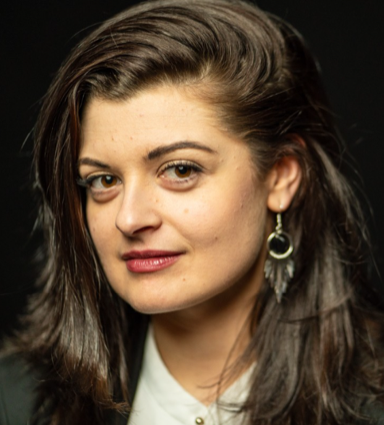
Marina Lazetic is a PhD candidate at the Fletcher School and the Director of Programs at Boston University’s Center on Forced Displacement. Throughout her academic and professional career, she has worked on projects related to forced displacement, nationalism, conflict prevention, gender, and human security. Her dissertation research focuses on civil society actors’ responses to migration in the EU and the US borderlands. She is particularly interested in understanding the impact of securitization and border externalization on civil society in unequal power dynamics between states, such as the case with the EU and the US and their neighbors. She has extensive experience conducting research and running conferences and seminars in Serbia, Bosnia and Herzegovina, Texas, and Mexico. Marina previously worked for nonprofit organizations and academic institutions such as the Feinstein International Center, Belgrade Center for Security Policy, and Open Society Foundations. Marina holds an MA in Law and Diplomacy from the Fletcher School at Tufts University and a BA in Sociology and Human Rights from Bard College.
Dissertation Title: “Migration Crisis” and the Civil Society Response: A Study of the EU and the US Borderlands
Email: Marina.Lazetic@tufts.edu
Past Predoctoral Fellows
2023-2025: Aditya Sarkar

Aditya Sarkar is a Ph.D candidate at the Fletcher School, Tufts University, and an independent researcher. He has advised the Governments of Sudan, Somalia, and Ethiopia on developing National Employment Policies and similar issues, and has worked with the World Bank, the International Labour Organization, and the Open Society Foundations. Aditya is qualified as a lawyer in India and in England and Wales. He is a graduate of the Fletcher School of Law and Diplomacy, and the National Law School of India University in Bangalore, India. Aditya’s Ph.D. research focuses on the relationship between precarity, claim-making and processes of urbanization in small Indian cities.
Email: aditya.sarkar@tufts.edu
2021-2022: Dr. Jared Miller
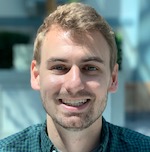
Dr. Jared Miller holds a Ph.D. in International Relations at the Fletcher School at Tufts University focusing on democratic accountability, elite politics, and corruption. He has also conducted research on election manipulation, corruption, and elite politics in the United States, Burundi, the Democratic Republic of the Congo, South Sudan, and Sudan. Previously, Jared worked in Nigeria for Search for Common Ground, an international peace building nonprofit. In Nigeria, he supported community-based peacebuilding programs on issues ranging from human rights accountability and governance reforms to community security and youth efforts to counter violent extremism. Jared holds an MA in Law and Diplomacy from the Fletcher School at Tufts University and a BA in International Relations from the College of William & Mary.
Dissertation Title: Making Votes Count: Identifying Exit Ramps from Political Markets to Democratic Governance in Nigeria
2021-2022: Dr. Alex McAuliff

Dr. Alex McAuliff (2021-2022 Fellow) holds a Ph.D. at the Fletcher School of Law and Diplomacy at Tufts University. Her work focused on gender, negotiations, and peacebuilding. She was particularly interested in the limits of women’s inclusion in negotiations absent attention to the power hierarchies that informed these processes. In her dissertation work, she questioned the foundational assumptions of negotiations, with specific attention to the ways militarized power shaped the people and issues deemed conflict-related. To do so, she examined the process and legacy of the Good Friday Agreement in Northern Ireland and the ways gendered, racialized, and classed violence and insecurity continued to be experienced by those at the margins, despite twenty years of a political peace.
Prior to pursuing her doctoral degree, Alex worked as a dialogue facilitator with a small peacebuilding group in Northern Ireland, as well as at Seeds of Peace, a youth-focused leadership organization. While pursuing her master’s degree, she worked with the Kroc Institute for Peace and Justice’s Women PeaceMakers Program.
Alex holds a Master of Law and Diplomacy from the Fletcher School, and a Bachelor of Arts from Colby College.
2021-2022: Dr. Diogo Eiji Yoshida

Dr. Diogo Eiji (2021-2022 Visiting Fellow in Human Security) holds a Ph.D. in International Public Policy at the University of Tsukuba, Japan. In his work, he explored predictors of sociocultural and psychological adaptation of Brazilian immigrants in Japanese and United States societies. His doctoral research was supported by the Nippon Foundation Nikkei Scholarship and the Japan International Cooperation Agency (JICA) Program for Developing Leaders in Latin America and the Caribbean, and primarily focused on the role of integration and interculturalism-oriented public policies and services provided by non-governmental organizations.
What attracted Diogo Eiji to the Henry J. Leir Institute was its expertise and research engagement in international migration and people’s well-being, particularly of minority groups and immigrants. He held a B.A. in International Relations from the Pontifical Catholic University of Goias, Brazil, and an M.A. in International Area Studies from the University of Tsukuba, Japan. His most recent article was forthcoming in The Journal of International Public Policy of the University of Tsukuba.
Dissertation Title: Brazilian Immigrants in Japan and the United States: Predictors of Sociocultural and Psychological Adaptation.
2019-2020: Benjamin Naimark-Rowse
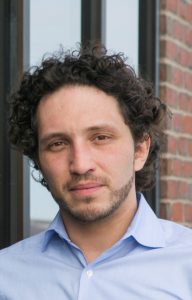
Benjamin Naimark-Rowse is a Ph.D. candidate and Topol Research Fellow in Nonviolent Resistance at at the Fletcher School of Law and Diplomacy at Tufts University, where he researches, and writes about social movements. He was a Visiting Scholar at SciencesPo, a Term Member in the Council on Foreign Relations, a Truman National Security Fellow, and the Founding Director of the Seevak Human Rights and Social Justice Fellowship. He also served as a Program Officer with the Open Society Justice Initiative, an electoral observer with The Carter Center, a Multilateral Affairs Researcher with the Open Society Policy Center, and a board member of the University of Chicago’s Human Rights Program.
From 2007–2010, he co-directed Darfurian Voices, the first public opinion survey of Darfurian refugees on issues of peace, justice, and reconciliation. Benjamin held an M.P.A. from Princeton’s Woodrow Wilson School and a B.A. with honors from the University of Chicago. His publications included “Surviving Success: Nonviolent Rebellion in Sudan,” “Nonviolent Resistance,” and “The Founding Myth of the United States of America.” His teaching included From Gandhi to the Arab Spring: Theory and Practice of Nonviolent Resistance. His research projects included “Liberating the Enemy in South Africa’s Anti-Apartheid Struggle” and “Donating to Dissent: Foundation Support for Social Movement Building.” He was the father of twin girls.
Dissertation Title: Bridging Relationships in Pro-Democracy Social Movements
2018: Dr. Bretton James McEvoy
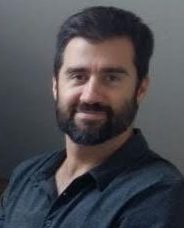
Dr. Bretton James McEvoy holds a Ph.D. at the Fletcher School of Law and Diplomacy at Tufts University. dissertation examined the legacies of un-reconciled violence that continued to shape social conflict in more “peaceful” societies, critically engaging white-dominated anti-racist projects that aimed to take greater responsibility for transforming the structures that perpetuated racialized violence and inequality in the United States. He concurrently consulted with Promundo, a global leader in engaging men and boys for gender equality, on a project that aimed to raise critical consciousness and promote accountable action amongst young men in predominantly white and class-advantaged U.S. communities. Previously, he worked in several capacities in humanitarian assistance and human rights, having managed humanitarian programs in a number of disaster, conflict, and post-crisis environments.
Dissertation Title: Disrupting Whiteness: Racism and Justice in the United States
Email: bret.mcevoy@gmail.com
2018: Dr. Benjamin J. Spatz
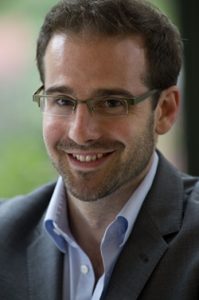
Dr. Benjamin J. Spatz holds a Ph.D. from the Fletcher School of Law and Diplomacy at Tufts University. He is a Senior Lecturer at the University of Cape Town Graduate School of Business and a World Peace Foundation-affiliated researcher. His expertise centers on the political economy of conflict, corruption and illicit finance, and conflict management. As a recognized expert in sanctions, he was previously appointed to the United Nations Security Council Panel of Experts on Liberia.
Dissertation Title: Bullets, Banks and Borders: How Targeted Sanctions Alter the Domestic Balance of Political Power in Sanctioned States
2017: Dr. Sarah Detzner

Dr. Sarah Detzner holds a Ph.D. at the Fletcher School of Law and Diplomacy in 2019. Her research focused on international security, particularly post-conflict stabilization/reconstruction and security sector reform. In addition, she served as director of the Fletcher Graduate Writing Program, as a Fares Center Fellow, and as a consultant for the World Peace Foundation. Before Fletcher, she served in the Obama Administration as a speechwriter for former Secretary of Defense Robert M. Gates, campaigned as an Obama 2008 staffer, and worked with the National Democratic Institute in Washington, D.C., Lebanon, and Jordan.
Dissertation Title: Evaluating the relationship between high levels of popular participation and high levels of security sector reform (SSR) progress
2017: Dr. Phoebe Donnelly

Dr. Phoebe Donnelly holds a Ph.D. at The Fletcher School of Law and Diplomacy at Tufts University and was a researcher on gender and conflict. She was a Visiting Fellow at the Feinstein International Center, where she was one of the lead researchers on a project funded by the Government of Norway on the sexual assault of aid workers. She also lectured and taught both at the graduate level at The Fletcher School and at the undergraduate level at Tufts University.
Dissertation Title: How do the attitudes and behavior of a non-state armed organizations (NSAO) towards women and girls relate to the NSAO’s broad strategy?
2017: Dr. Roxanne Krystalli

Dr. Roxani Krystalli holds a Ph.D. and M.A. from The Fletcher School of Law and Diplomacy and a B.A. from Harvard University. She is currently a Senior Lecturer at the University of St Andrews, where she co-leads a research project on love and care in remaking worlds after loss, including violence, illness, grief, and ecological crises. This project, conducted in collaboration with Dr. Philipp Schulz at the University of Bremen and funded by the Arts and Humanities Research Council (AHRC) and the German Research Foundation (DFG), explores how practices of attention are linked to care, particularly through questions of what it means to love a place and the responsibilities that flow from that love.
For more than a decade, Dr. Krystalli has worked at the intersection of gender, justice, and peace-building, both as a researcher and as a humanitarian practitioner. She has partnered with international and community-based organizations such as Oxfam GB, Mercy Corps, the Feinstein International Center, and multiple UN agencies to better understand the experiences of conflict-affected communities. Her scholarship and practice have emphasized the creation of ethical and rigorous methodologies for documenting gendered harms, and she continues to advise organizations and NGOs on advancing gender-sensitive approaches to peace and justice initiatives.
At Fletcher, Dr. Krystalli served as the Humanitarian Evidence Program Manager at the Feinstein International Center, where she managed a DFID-funded partnership between Oxfam and the Center to strengthen evidence-based humanitarian practice. She also co-managed a study on refugee experiences across Greece, Jordan, Turkey, and Denmark and contributed to the Lean Research initiative on ethical methodologies in vulnerable settings. Her broader career has included collaborations with the UNDP, UN Women, UNICEF, IOM, and community-based organizations in regions spanning Egypt, Pakistan, Uganda, Colombia, and beyond. Her published work has appeared in outlets such as The Washington Post, The Conversation, openDemocracy, and the International Feminist Journal of Politics. Recognized for her impact, she has been named a P.E.O. International Peace Scholar, an Ogunte Featured Social Innovator, and a Social Science Research Council fellow, and has received the Tufts Presidential Award for Citizenship and Service.
Roxani’s research has been supported by numerous grants and fellowships from the Arts and Humanities Research Council, the British Academy, the Scotland’s Future Series, the United States Institute of Peace, the National Science Foundation, the Folke Bernadotte Academy, the Social Science Research Council, the Henry J. Leir Institute, and the World Peace Foundation. Her blog received the Best Blog award at the International Studies Association in 2019.
Dissertation Title: We are not good victims: Hierarchies of Suffering and the Politics of Victimhood in Colombia
Email: rk70@st-andrews.ac.uk
2016: Dr. Ana Cecilia de Alba González

Dr. Ana Cecilia de Alba González is a Fullbright scholar and a Ph.D. and M.A. graduate from The Fletcher School of Law and Diplomacy at Tufts University, with an earlier B.A. in International Relations from ITESO in Mexico, and a Certificate from Sciences Po in France.
She is a nonresident scholar at Rice University’s Baker Institute for Public Policy and assistant professor of international relations at Tecnológico de Monterrey. De Alba studies how public institutions — particularly electoral systems and social programs — shape political behavior, inclusion, and governance across the Americas. Her upcoming book, “Beyond the Ballot: How Voter Registration Reflects State Capacity and Shapes Democracy,” explores how the mechanics of voting influence trust and democratic outcomes. She has also worked with the World Bank, USAID, the OAS, UNDP, IDB, the Ford Foundation, and other institutions.
Dissertation Title: Welfare Implications of Changing Political Equilibria: Assessing the Impact of Decentralization on Poverty Levels in Mexico
